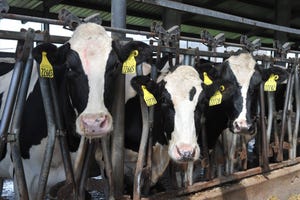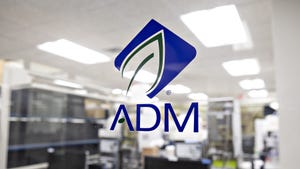GAAP to advance agri-food start-ups in Western Canada
Partners are Ag-West Bio, Global Institute for Food Security at University of Saskatchewan, Innovation Place and Saskatchewan Food Industry Development Centre.
December 22, 2021

Saskatchewan agri-value start-ups have a new support system to help them succeed: the Global Agri-Food Advancement Partnership (GAAP) is beginning its work of assisting start-ups and growing the agri-food industry in Western Canada.
The partnership came about because the founding partners – Ag-West Bio, the Global Institute for Food Security (GIFS) at the University of Saskatchewan, Innovation Place and the Saskatchewan Food Industry Development Centre (Food Centre) – recognized that there was a gap in the innovation pipeline.
"The GAAP will draw on the expertise in the agri-food community – and the extensive network that those experts have developed across the country and around the globe – to support a whole new generation of agri-food companies in Saskatchewan," says Karen Churchill, president and CEO, Ag-West Bio Inc.
The founding partners say almost all the elements were already in place in the region to create a world-class agri-food innovation cluster, but agri-food start-ups have unique challenges – along with the usual issues faced by most start-ups, they often need highly specialized equipment and staff, have high upfront costs, and face a long road to market entry and revenue generation. This is where the GAAP fits.
Interim CEO, Jay Robinson, believes the GAAP is unique. "We have not found another organization that provides what we are proposing. GAAP is not just an accelerator; it is not just funding, and it is not just an incubator. It is a combination of all these things, and more."
The GAAP targets two types of companies:
Early-stage companies working on promising, disruptive technologies in the early stages of development (post proof of concept) with application in agriculture, food or food processing.
Domestic and international clients looking to establish a presence in Western Canada will find a soft-landing at the GAAP. It will allow them to access the North American marketplace with lower entry costs, reduced capital expenditure, tailored concierge services and an expedited path to market.
Companies within this new partnership can enjoy the following benefits:
Access to GAAP facilities for up to three to four years. This includes greenhouses, laboratories and offices at Innovation Place, GIFS' Omics and Precision Agriculture Laboratory (OPAL) to support plant breeding, post-harvest technologies, and drone, imaging and sensor technologies, and the Food Centre's expertise and incubation suites.
Access to significant investment from GAAP (upwards of $1 million with support from partners) to qualifying companies, to allow them to focus on technology progression and market adoption.
Access to commercial-volume scale-up opportunities for early-stage and rapid growth stage companies as they encounter the hurdles of mass production, or the daunting task of financing their own build.
Access to mentorship from experts in business development, regulatory pathway, product development, fundraising, marketing, logistics, exporting and more. Entrepreneurs can also access training on specialized equipment. All this will help companies avoid costly mistakes, expediting the path to market and lowering capital requirements.
GAAP is pleased to be working with investors from the private industry and is ecstatic regarding the recently announced support of $1.5 million from Prairies Economic Development Canada.
"The GAAP partnership recognizes the opportunity that innovation in agriculture offers global economies and is committed to seeing Canada lead the world in advancing agtech by addressing real structural challenges in agriculture and food," says Steven Webb, CEO, Global Institute for Food Security. "We are ready to work with diverse stakeholders across Canada's economy because agriculture is one sector that has the capacity to address various global challenges including food security and climate change, on a massive scale."
You May Also Like



